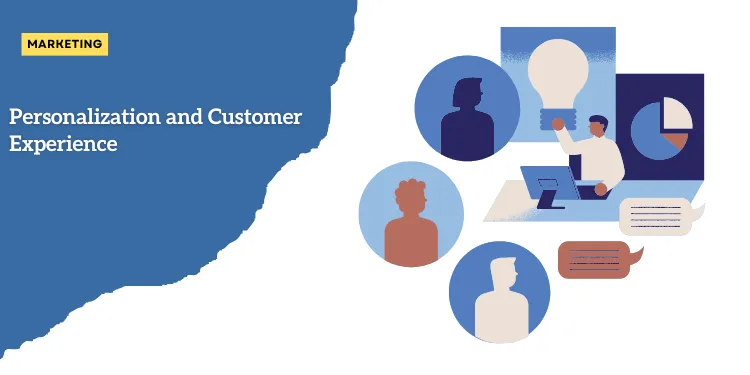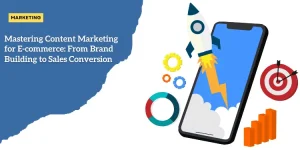Personalization and Customer Experience

Anúncios
In today’s digital landscape, where consumers are inundated with endless marketing messages and promotional offers, the ability to stand out has never been more crucial.
This is where personalization comes into play, transforming the way businesses engage with their customers.
Anúncios
When executed effectively, it has the power to significantly enhance the customer experience, boost engagement, and drive conversions.
As businesses strive to meet the evolving expectations of consumers, personalized experiences are no longer just an option – they have become a necessity.
Anúncios
From personalized emails and product recommendations to tailored ads, the potential to drive meaningful interactions is immense.
In this article, we explore how personalization can elevate customer experience, why it works, and how companies are leveraging data to create more relevant, customer-centric marketing strategies.

The Power of Personalization in Marketing
At its core, personalization is about delivering the right message to the right person at the right time.
With the vast amount of customer data available today, marketers are increasingly able to create highly tailored experiences that resonate with individual preferences.
This can take various forms, such as personalized email campaigns, dynamic product recommendations, and targeted advertisements that speak directly to the consumer’s interests.
The rise of personalized marketing is driven by several factors:
-
📊 Data Availability: With the increasing number of consumers engaging with digital platforms, businesses now have access to a vast amount of data that can be examined to gain insights into customer behaviors and preferences.
-
🤖 Advanced Technology: The development of artificial intelligence (AI) and machine learning (ML) technologies has made it easier for businesses to analyze this data and automate the process of delivering personalized content.
-
📈 Changing Consumer Expectations: Today’s consumers expect more than just generic messaging. They want relevant content that addresses their unique needs and interests. This has raised the bar for businesses looking to foster customer loyalty and drive sales.
How Personalization Enhances Customer Experience
Personalization doesn’t just improve marketing efforts—it fundamentally enhances the customer experience, making interactions more meaningful and relevant.
When consumers receive content or product recommendations tailored to their individual preferences, they are more likely to feel understood by the brand, resulting in greater satisfaction.
1. Tailored Communication
One of the most common applications of personalization is in email marketing.
Emails tailored to individual customers, using data like past purchases, browsing habits, or user behavior, tend to be more successful than generic mass emails.
By including the customer’s name, suggesting relevant products, or offering discounts on items they’ve shown interest in, businesses can create messages that are more personalized and engaging.
For instance, ASOS, a popular UK-based fashion retailer, has successfully implemented personalized email campaigns to encourage repeat purchases. By analyzing past browsing and purchase behavior, they send tailored product recommendations to their customers.
This simple strategy has not only boosted engagement but has also led to higher conversion rates, as customers are more likely to click on products they feel are aligned with their preferences.
2. Personalized Product Recommendations
Another key area where personalization is highly effective is in product recommendations.
Online retailers and e-commerce giants like Boohoo use data-driven algorithms to suggest products based on a customer’s browsing history, past purchases, and even items that other similar customers have bought.
This ensures that consumers are presented with products they are more likely to purchase, increasing the likelihood of conversion.
The idea is to offer customers what they are most likely to need or want, reducing the decision-making time and providing them with relevant options.
As a result, the customer experience becomes more streamlined, and the process of finding products becomes much more convenient.
3. Dynamic and Targeted Ads
Personalized advertisements are another powerful tool in a brand’s marketing arsenal.
With the help of sophisticated targeting techniques, businesses can display ads tailored to a user’s specific interests, demographics, or previous interactions with the brand.
Google Ads and Facebook Ads, for example, allow businesses to target potential customers with dynamic ads that showcase products they’ve previously viewed, increasing the chances of them returning to make a purchase.
Through retargeting, which is a form of personalized advertising, businesses can remind customers about items they have shown interest in, enticing them to complete their purchase.
These highly relevant ads are far more effective than traditional blanket advertising because they are seen by the right audience at the right time.
Why Personalization Works
The effectiveness of personalization lies in its ability to make customers feel valued and understood.
It’s a psychological principle that when consumers are presented with content that is relevant to them, they are more likely to engage with it and take action.
1. Higher Conversion Rates
One of the key reasons why personalization works is because it drives higher conversion rates. Studies have consistently shown that personalized experiences lead to better engagement and increased sales.
For example, personalized email campaigns have been found to result in a 29% higher open rate compared to generic emails, with click-through rates increasing by up to 41%.
This is because personalized content speaks directly to the customer’s needs, making it more compelling and relevant.
2. Improved Customer Loyalty
When customers feel like a brand understands their needs, they are more likely to remain loyal.
Personalization fosters a deeper emotional connection between the consumer and the brand, which can lead to repeat business and long-term customer retention.
By offering a more tailored experience, businesses can create a sense of trust and loyalty that encourages customers to continue engaging with the brand.
3. Enhanced Customer Satisfaction
Providing personalized experiences shows that a brand is invested in its customers’ individual needs.
Whether it’s through personalized product recommendations or offering discounts based on a customer’s browsing behavior, these gestures help to create a more satisfying shopping experience.
In turn, this satisfaction leads to positive word-of-mouth, referrals, and customer advocacy, all of which are invaluable for a business.
4. Data-Driven Decisions
Personalization also allows businesses to make more informed, data-driven decisions.
By analyzing customer behavior, preferences, and past interactions, marketers can better understand what resonates with their audience and tailor future campaigns accordingly.
This level of insight is invaluable for optimizing marketing strategies and improving customer experiences.
Challenges in Implementing Personalization
While the benefits of personalization are clear, there are several challenges that businesses must overcome when implementing this strategy.
1. Data Privacy Concerns
In an age where data privacy is a major concern, businesses must ensure that they are collecting and using customer data responsibly.
Consumers are becoming more aware of how their data is being used, and they expect companies to be transparent about their data collection practices.
Ensuring compliance with regulations such as the General Data Protection Regulation (GDPR) is essential for businesses looking to implement personalization while maintaining consumer trust.
2. Complexity of Integration
Integrating personalized experiences into existing marketing systems can be a complex process.
Businesses need the right tools and technologies, such as data analytics platforms and customer relationship management (CRM) software, to effectively analyze and act on customer data.
Additionally, coordinating personalization across multiple channels—such as email, social media, and websites—requires seamless integration to ensure a consistent customer experience.
3. Over-Personalization
While personalization is beneficial, it is also possible to go too far. Over-personalization—where customers feel overwhelmed by too many tailored messages or offers—can lead to annoyance and opt-outs.
Striking the right balance is key to ensuring that the customer experience remains positive.
| Scenario | Before | After (Lifestyle Inflation) |
|---|---|---|
| 🚗 Car | Affordable and economical model | Luxury vehicle with high maintenance costs |
| 🍽️ Food | Cooking at home | Frequent dining at expensive restaurants |
| 🏡 Housing | Modest house/apartment | Larger property in a more expensive neighborhood |
| 📱 Technology | Functional phone and gadgets | Frequent upgrades to the latest releases |
| 🎉 Entertainment | Budget-friendly and occasional options | Frequent travel and shopping sprees |
Conclusion: The Future of Personalization in Marketing
Personalization is no longer just a marketing trend; it’s a critical component of modern customer experience strategies.
As technology continues to evolve and businesses gain access to more customer data, the potential for personalization will only grow.
Companies that embrace personalization not only stand to improve engagement and sales but also cultivate stronger relationships with their customers.
In the end, personalization works because it speaks directly to the needs and desires of the consumer.
By leveraging data to deliver more relevant, tailored experiences, businesses can enhance customer satisfaction, boost conversion rates, and build lasting loyalty.
As the digital landscape continues to evolve, personalization will remain a key strategy for businesses looking to stay ahead of the competition and deliver exceptional customer experiences.
By utilizing the principles of personalization, companies like ASOS and Boohoo continue to create more relevant shopping experiences, leading to stronger customer relationships and enhanced sales.
Their success highlights the power of personalization in today’s marketing landscape, emphasizing that the future of customer engagement is deeply rooted in understanding and meeting the individual needs of each consumer.






